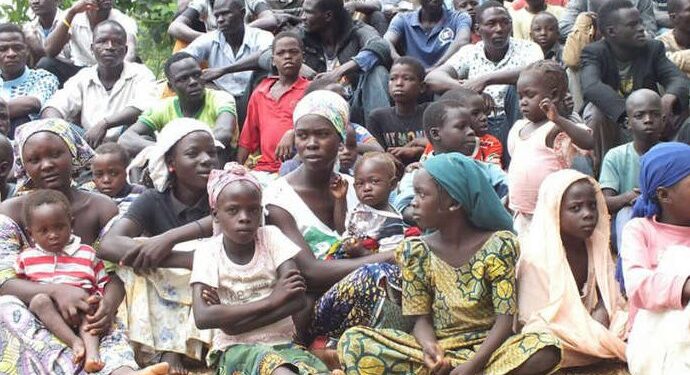In a bid to offer a fresh start to 300 internally displaced persons (IDPs), the Federal Government has provided farming inputs and stipends. Additionally, the Plateau State Government, through the Gbom Gowm Jos, has allocated 150 hectares of farmland to the IDPs for a five-year period.
The initiative, launched in Bassa Local Government Area of Plateau State, was spearheaded by the Federal Commissioner of the National Commission for Refugees, Migrants, and Internally Displaced Persons (NCFRMI), Aliyu Tijani Ahmed. The project is a collaboration with the Federal Ministry of Agriculture and Food Security, PS Agro Masters, and traditional rulers.
Ahmed, represented by NCFRMI Director for Internally Displaced Persons, Fatima Mamman Daura, explained that the government would also provide security for the farmers through the Nigeria Security and Civil Defence Corps (NSCDC) and Agro Rangers. The project, currently in its first phase, will initially be carried out in Nasarawa, Plateau, and Yobe States, with plans to expand to other states with significant IDP populations.
“We are here in Bassa Local Government to launch the second phase of the Renewed Hope Project for Internally Displaced Persons,” said Daura. “This collaborative program involves the National Commission for Refugees, Migrants, and Internally Displaced Persons, the Federal Ministry of Agriculture and Food Security, PS Agro Masters, and traditional rulers.”
Also Read:
. 273 Army Officers Begin Senior Staff Course Qualifying Examination at Jaji Cantonment
. NDLEA Seizes 532 Parcels of Synthetic Cannabis at Lagos Seaport
. NDIC Pays 82.36% of Depositors at Defunct Heritage Bank
Daura emphasized the role of the local communities, highlighting that the Gbom Gowm Jos has donated farmland for the IDPs to use over the next five years. The NCFRMI, in partnership with the Ministry of Agriculture and Food Security, will provide the necessary inputs for cultivation, while the private sector will ensure that the harvested produce is sold, putting money back into the hands of the IDPs and contributing to food security.
The project aims to transition IDPs from subsistence farming to more commercial agriculture. Governor Caleb Muftwang, represented by the Executive Director of the Plateau State Emergency Management Agency (SEMA), Sunday Abdu, praised the initiative, noting that it would help farmers adopt mechanized farming techniques and ultimately improve their livelihoods.
“The essence of this program is to move away from subsistence farming, which is typically meant just to feed families, to commercial farming,” Abdu said. “This initiative is designed to empower the people of Plateau State to cultivate crops on a larger scale.”
He also expressed concern about the impact of displacement on education and social life, emphasizing the need for such programs to restore normalcy and improve the quality of life for affected individuals.









